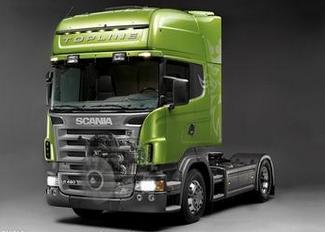 The China Automobile Association has submitted to the relevant departments the proposal for the scientific implementation of the four standards for heavy-duty vehicles. The relevant departments are coordinating and will soon have results.
The China Automobile Association has submitted to the relevant departments the proposal for the scientific implementation of the four standards for heavy-duty vehicles. The relevant departments are coordinating and will soon have results. The four standards for heavy-duty vehicles originally scheduled to be implemented on July 1 will be delayed again. Prior to this, the implementation time of the National IV emissions has been postponed from January 1, 2011 to January 1, 2012, and from January 1, 2012 to July 1, 2013.
Industry insiders believe that the lag in oil quality and inadequate vehicle urea addition facilities are the main reasons for the delay in the implementation of standards. However, judging from international trends and domestic environmental demands, implementing the four national standards is imperative.
Industry insiders suggest that the first is to accelerate the pace of oil upgrading, otherwise, the implementation of the standard can only be on paper; the second is to establish and improve the urea supply system; the third is to implement a transition period for reasonable standards. The upgrading from State III to State IV is a serious challenge for heavy-duty vehicle companies. Not only is there a conversion cycle, but there must also be a certain inventory-digestion process for sales, and a year or so of transition and buffer period should be given. To adapt to new standards and new changes; Fourth, to strengthen the independent industrialization of key components research and development.
Plastic Pipe Coiler/Pipe Winding Machine
Plastic Winding Machine Is Mainly Used to Produce High-Speed Winding PE Pipes, PE-RT Pipes, Etc. With An Intelligent System, Workers Only Need to Change and Unload Coils, And the Rest Are Fully Automated and Intelligent Operations.
Our Plastic Pipe Winding Machine Is Equipped with A Servo Traverse System and A PLC Intelligent Control System, Which Can Fully Realize a Series of Intelligent Operations Such as Automatic Stacking, Cutting and Changing of Coils.
Plastic Winder,Plastic Pipe Winding Machine,Pipe Winding Machine,Plastic Pipe Winder,Plastic Pipe Coiler Machine,Pipe Coiler Machine
Zhangjiagang Polestar Machinery Co.,Ltd , https://www.polestar-machine.com